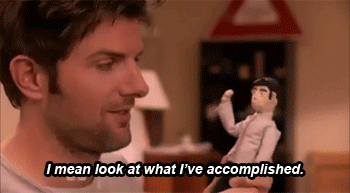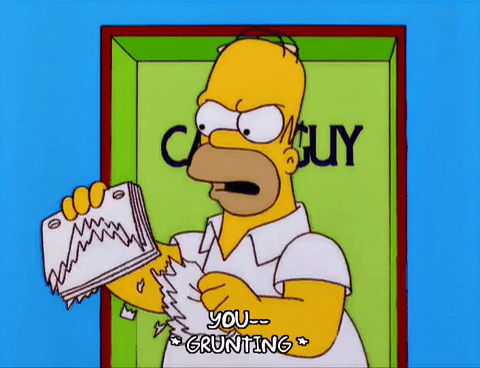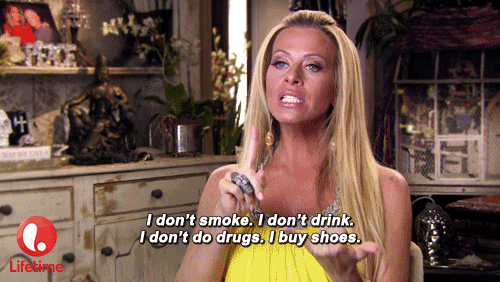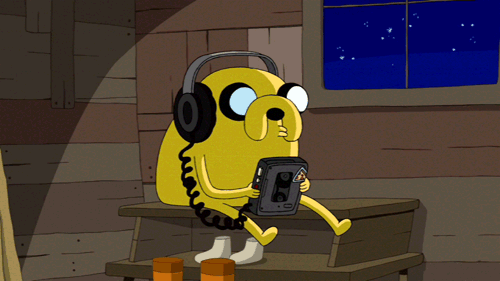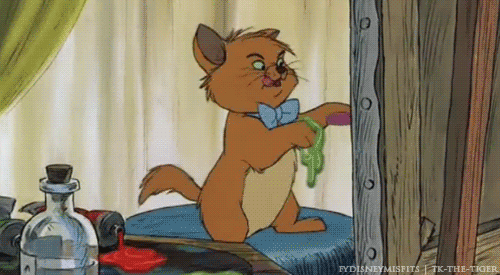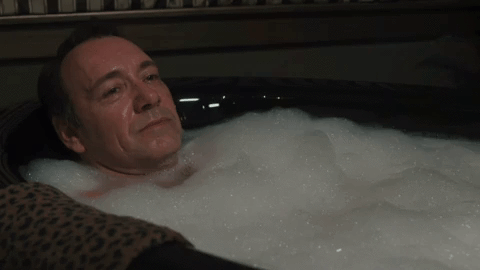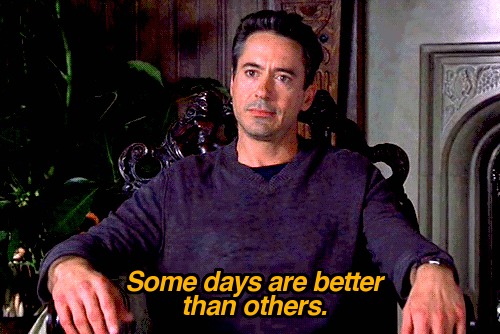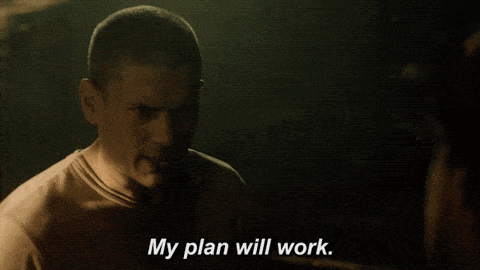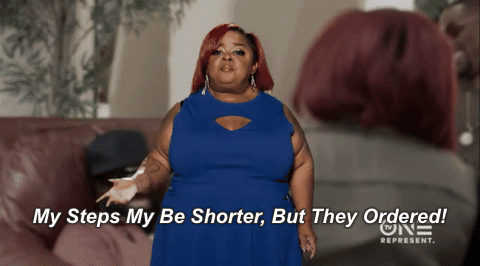Put Together by Anthony Rivas
1.
Take note of all the small things you’ve accomplished today.
“I write a ‘Did Do’ list of all the things I accomplish each day. Even just really basic things like ‘shower,’ ‘go to work,’ ‘put laundry in hamper,’ or ‘made bed.’ It really helps me being able to look at a list of things I did instead of beating myself up over things I couldn’t accomplish.”
2. Try the “5-4-3-2-1” trick.
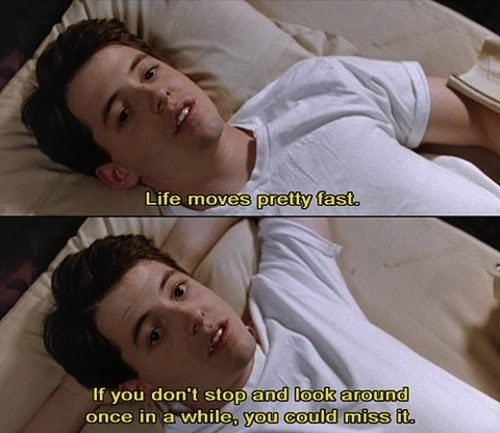
“If I’m depressed, it’s difficult to try to calm down because I’m so convinced that nothing will help. So instead of trying to meditate, which makes me focus more on the issue, I use the ‘5-4-3-2-1’ trick my therapist taught me: Look around you. What are five things you see that you never noticed before? Four things you can touch, and how do they feel? Three things you can hear. Two things you can smell. And lastly, one positive thought you can tell yourself.
It has the same effect as taking deep breaths but gets you actually focusing on something else other than your thoughts.”
3. Immerse yourself in another world by reading a book.
“Reading a book always works for me because it helps distract my brain and mentally takes me to another place. Reading has been my safe haven for years so I always keep a book with me anywhere I go and read EVERY day.”
4. Allow yourself a moment to cry and let it all out.
5. Think about getting an animal companion.
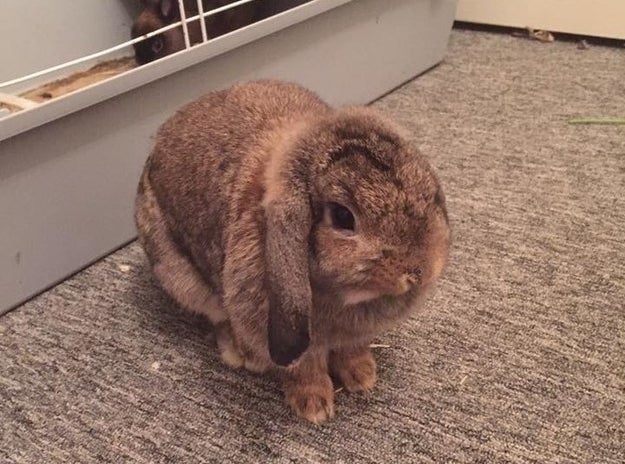
“During my first bout of depression, I got my first bunny. It’s really hard to be sad with silly little animals like bunnies running around. Now, in grad school, I’ve had a resurgence because of the stress levels. I went and got a new one, and she’s already made days so much easier to get through.”
6. Or if you have one already, cuddle with them!
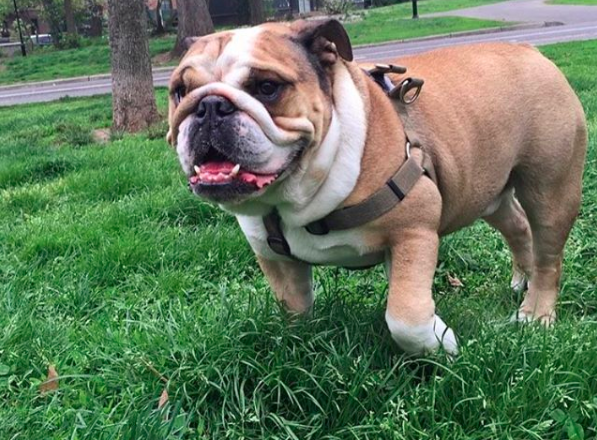
“I like to just sit and cuddle with my dog for a few minutes. He knows when I’m depressed, and usually lays down either on my bed or the ground next to me. Sometimes he’ll lick my hand to let me know that he’s there for me. It lifts me up enough to get me through each day.”
7. And if you don’t have a pet, there are plenty of cute/funny/happy pet videos online.
“I had a hard time taking care of myself during my worst depression so I was really worried about caring for another living being, aka a pet. So I watched happy pet videos on repeat and shared with literally anyone who would listen. Watching those videos and watching others’ reactions to said videos made my day.”
8. Keep a gratitude journal.
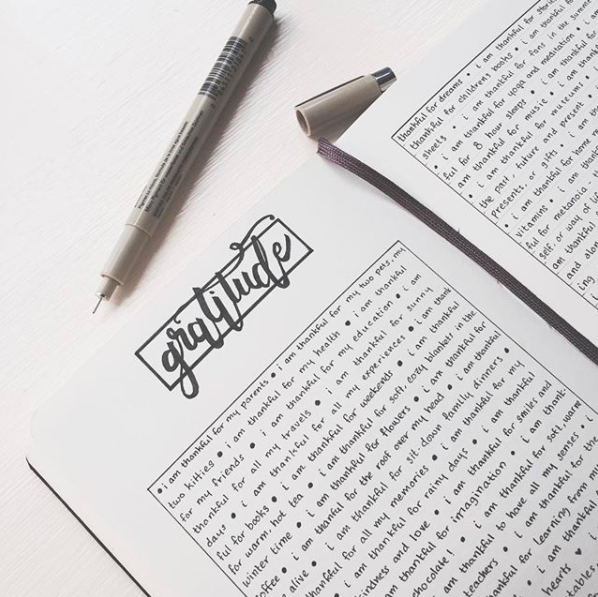
“I try to keep a diary where I write all the nice things that happen throughout the day. When I’m not feeling myself, I can reread these and it can sometimes brighten my day.”
9. Or write down your feelings on a piece of paper, then tear it up.
“You know how people say if you are ever angry at someone you should write down why and then tear up everything you just wrote? Well that’s what I do with my depression. I try to write, draw, or just scribble out all of the terrible feelings, and then I tear it up. It’s my little way of trying to control the hurricane of emotions.”
10. Clean and organize your home.
“I usually go on a cleaning spree. I have depression, anxiety, and OCD and completely cleaning my space settles me. It refocuses me and gives me a sense of control. It also tunes out the negative voice in my head. I feel accomplished, and can look around and feel pride.”
11. Think about trying some yoga.
“I either look up videos on YouTube or just Google ‘relaxing yoga.’ There’s so many videos that range from five minutes to an hour, and it really helps take my mind off of everything. It’s relaxing and gets your endorphins going without full on exercising. It’s really good for your health, too. So it’s a win-win to help you both emotionally and physically.”
12. Cook or bake something yummy.
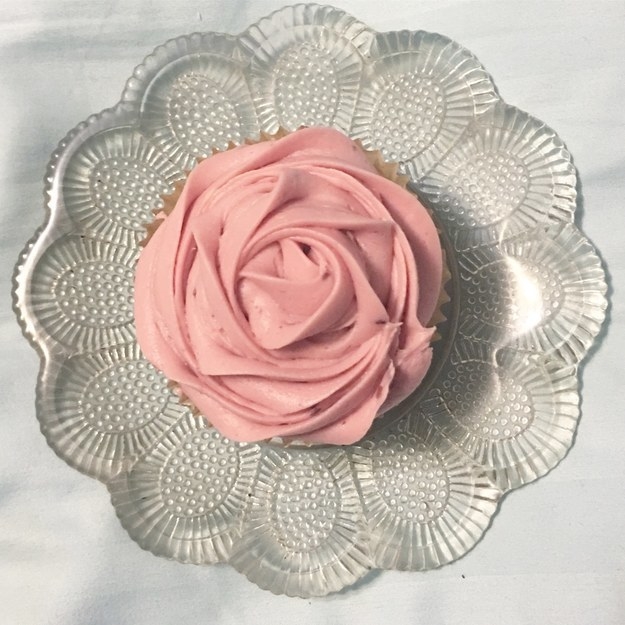
“When I’m having an especially bad day with my depression/anxiety, I’ll try a complicated new recipe or skill in the kitchen. Cooking and baking both bring me joy, and focusing on getting the recipe perfect forces my brain out of it’s negative rumination cycle. Plus, I get to eat something delicious at the end of it all.”
13. Watch something funny on TV or the internet.
“I take a little time every day to watch something so hilarious that it’ll make me cackle no matter how bad my mood is. I keep my Netflix and YouTube queues stocked with stand-up specials and comedy clips. It’s obviously not a replacement for antidepressants or therapy, but I’ve found that really belly laughing every day makes a huge difference.”
14. Try the #100HappyDays challenge on Instagram.

“I find that doing the Instagram #100HappyDays challenge was helpful for me. It forced me to find the happiness in every day, whether it be a new food I made, a pretty flower, someone I love, or an activity. I was able to look at my happiest moments from these days at a glance and realize I had a pretty decent life.”
Read more about the #100HappyDays challenge here.
15. Get up and move — it doesn’t matter where you go.
“Get out of the space you’re in, physically. If you’re sitting down, get up and walk around for a few minutes. If you’re inside, go outside and get some fresh air. Sit on the other side of the room or in a different room. My depression and anxiety largely stem from getting caught up inside my head, and the easiest way I’ve found to break that pattern is to put myself in a different space physically.”
16. Exercise. Focus on what you’re doing and how your body feels to distract yourself.
“Whenever I feel like cutting, I work out a lot. It makes you focus on what you’re doing rather than how you’re feeling. If you keep doing push-ups or whatever, you start to think about the strain on your muscles more then anything else.”
17. Make someone else’s day a little better.
“One of the coping skills I use with my bipolar depression is to take five minutes and make someone else’s day better. Uplifting another person instantly makes you feel better. You never know what someone else is going through, so a smile, compliment, or act of kindness can go a long way on both ends.”
18. Write little positivity notes to yourself, and leave them where you’ll see them.

“I write positive things like ‘you can do it’ or ‘you are enough’ on sticky notes, and put them up in my dorm. It works wonders!”
19. Cut out substances that may be toxic to your depression.
“I stop drinking alcohol and caffeine as soon as I can when I start noticing my symptoms of depression. Since alcohol is already a depressant, that just fuels the fire, and caffeine only enhances the anxiety of feeling depressed.”
20. Listen to music that makes you feel good.
21. Or go to a live music show.
“Going to watch live music! Sometimes it can make me anxious, but as soon as the music starts the darkness goes away and the light shines through. If there is no live music, I just listen to live recordings. Works like a charm.”
22. Get out into nature.

“Whenever my depression would get bad I’d go into the forest, set up a hammock, and just lay in it, taking in the sounds and peacefulness. The change of scenery from my bedroom helps, and it’s almost like I’m getting away from what makes me most upset. Nature helps me realize beauty in life, along with an appreciation that life will continue regardless.”
23. Sing. Belt it out till you’re feeling better.
“I stop everything and sing until I nearly lose my voice. It’s mainly musical theatre but any song is welcome, especially those related to a certain situation or emotion that I’m trying to work through.”
24. And definitely try dancing like no one’s watching.
“I shut my door, crank my music up, and just let go. Nobody is watching me, judging me. I can just be free with my body. Sometimes they’re upbeat songs, sometimes they’re sad — whatever helps me reach the emotions I need to feel.
Letting go and just feeling the song, singing along, and moving my body to the beat or the words helps me let go.”
25. Draw/paint what you’re feeling.
“Whenever I am going through a particularly rough time, I always draw a person experiencing the emotions I feel. Oftentimes the picture can get graphic and sad, but it keeps me from sinking further in that moment and brings me back, because all of the emotions were translated to the paper.”
“I paint. It doesn’t matter if it’s good or bad. But just expressing my emotions on a canvas is very grounding for me. I love the feeling of the brush and the paint. I’m always able to get away from my problems and process in my own time.”
26. Or find another creative outlet to devote your time to.

“I do something creative with my hands. Knitting, embroidery, and pottery are my go-to. The projects are easy to accomplish — or progress is visible, at least — so if nothing else gets done (i.e. dishes, socializing, hell, even showering), I have proof that I did something.”
27. Take your time solving a jigsaw puzzle.

“I stock my room up with boxes of jigsaw puzzles (mostly landscapes that I love) and whenever my depression hits, I’ll grab a random box and start putting it together. I feel like the hole inside me diminishes a little bit with every piece I add, and by the time I’m finished with the whole thing, the sadness is gone. Instead, I feel content and a sense of accomplishment.”
28. Make yourself feel good by painting your nails.
“I find painting my nails really helpful when I’m really battling. It helps me focus on a very precise task for a while and makes me feel pretty afterward.”
29. Or treat yourself to a quality skincare routine.
“I started practicing self-care. Specifically, I started taking really good care of my skin and indulged in high-end beauty products. Every night, I make sure that I wash, tone, and moisturize my face — something I never did a year ago. This little bit of self-care has really helped me increase my self-love.
30. Or take a warm, comforting bubble bath.
31. Put together a “coping box.”
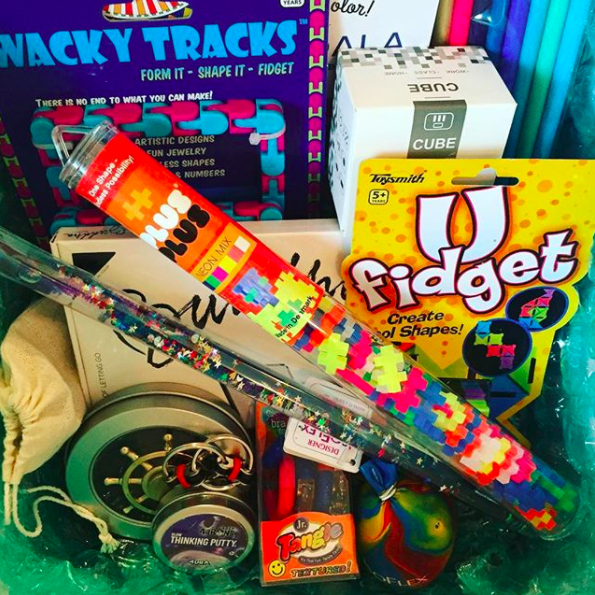
“I made a coping box. I filled it with things that help me and make me feel good: a deck of cards, bubbles, candy, play foam, a fortune teller (like the one from elementary school). In the fortune teller, I put things that I know make me feel better, including self-care things, taking a shower, reaching out for support, calling a friend or loved one, and going for a walk. The fortune teller also helps me make beneficial decisions, which I normally wouldn’t make during a depressive episode, when I’d normally just sit and do nothing.”
32. Or a positivity jar.
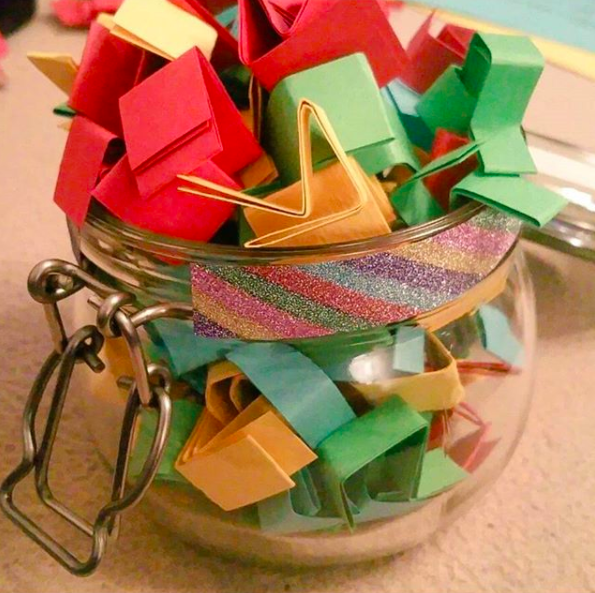
“When I was particularly bad, I kept a jar with a stack of pretty paper near it. When something good happened to me or someone complimented me, I would write it down and add it to the jar. On terrible days, when I was suffocated by my own thoughts, I would open the jar and be reminded of the positive things that have happened to me, and in some cases, how loved I really am.”
33. Have a mantra on deck that’ll help you feel better.
“When my depression rears its ugly head, I use a mantra that I made up for myself to help get around it. I tell my depression, ‘I am not depressed, I have depression. You’re there and a part of me, but you don’t own me. I respect you, but I don’t give you power over me.’ It helps clear my head and gives me perspective, reminding me that it will pass and I’ll still be here, like so many times before.”
34. But also acknowledge that the depression is there.
“I have learned to allow myself to be depressed when it’s a dark day. If I don’t fight it and just be in the moment, I tend to recover more quickly. If I fight it and feel guilty for allowing it to happen over and over again then it seems that I spiral and things get worse. Yes, today isn’t great. It’s dark and I’m struggling. But that’s OK because not every day can be good and I can’t expect to always feel good. It’s not my fault, it just happens.”
35. Stay organized by sticking to a routine.
“I stick to routines, orders, and schedules. Having my routines organized and sticking to them gives me a sense of control over how my day/week/month/life will progress. When I feel good, the routines help me make sure I do things I need to, like laundry and exercise. When I feel bad, the routines give me a reason to get up and do the thing. ‘It’s Sunday so I HAVE to do laundry, otherwise I won’t have fresh underwear, and that’s a crap way to feel.'”
36. And adopt a “no-guilt” policy if you end up not following through on something.
37. Make your bed every. single. morning.
“I make my bed every single morning without fail. By making your bed, it makes it harder to get back into it. Also, even if you had a rough day and didn’t do anything, you made your bed, and that’s an accomplishment when you’re in a depressive state.”
38. Wrap yourself up in a warm, cozy blanket.
“I like to wrap myself up in a warm blanket with a heat pack and do crosswords or sudoku. The sensory aspects of being warm and cozy are soothing, while the puzzles help take my mind off the intrusive thoughts I’m having.”
39. Make a list of anything and everything to get your get your mind off your depression.
“I make lists of anything and everything. From names of Ru Paul’s Drag Race contestants to a list of all the Pokémon I know from the top of my head. Lists calm me down.”
40. Break up larger tasks into smaller ones.
“I break up the overwhelming tasks into smaller pieces and pat myself on the back for getting each thing done. For instance, if the whole house is a mess and I don’t think I can get it all cleaned, I start by cleaning up the living room, then focus on the next chore only instead of everything at once. Sometimes I get it all done, sometimes I just sit in the clean room. But I feel much better getting some things done rather than putting it off until the next day. Getting it done gives me some control and helps me start the next day on better footing.”
41. Play a video game to distract yourself.
“When my suicidal ideas are completely out of control, I knuckle down to a marathon session of online Solitaire. It drowns out some of the noise in my head. Honest to god: Solitaire has saved my life more than once.”
42. Drink water whenever you get the chance.
“One thing I swear by is waking up and immediately having a glass of water. I don’t know what it is about it, but it sets the stage for the rest of my day. It helps me to feel human and brings a sense of lightness to myself.”
43. And if anything, just masturbate.
HBO / Via giphy.com
“My therapist actually told me that if I’m in bed at night and depression comes creeping, to try to masturbate. It’s helped a lot. It’s hard to be self-loathing while having an orgasm!”

